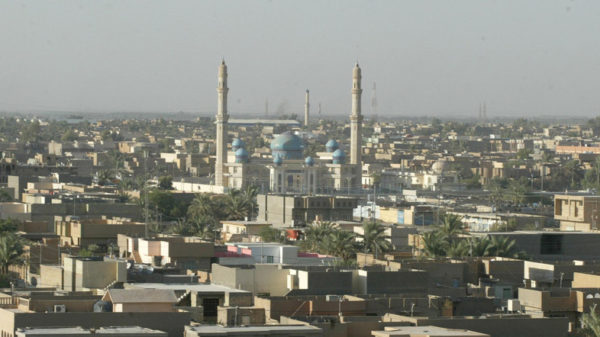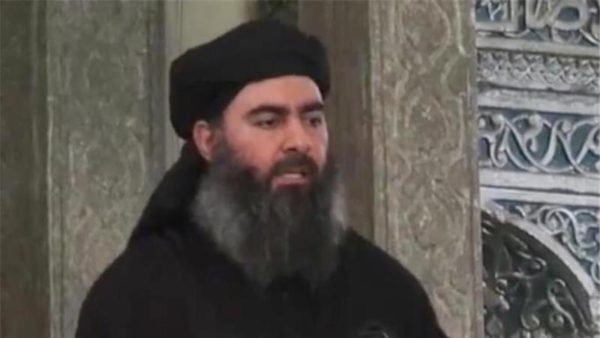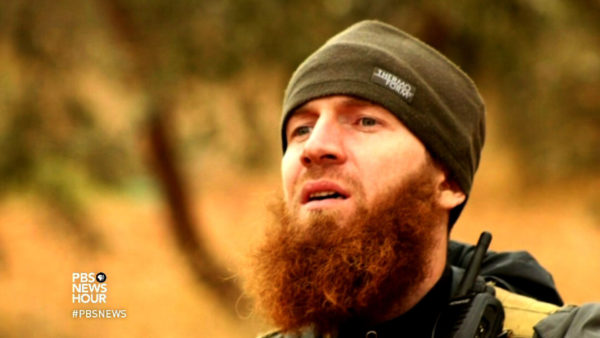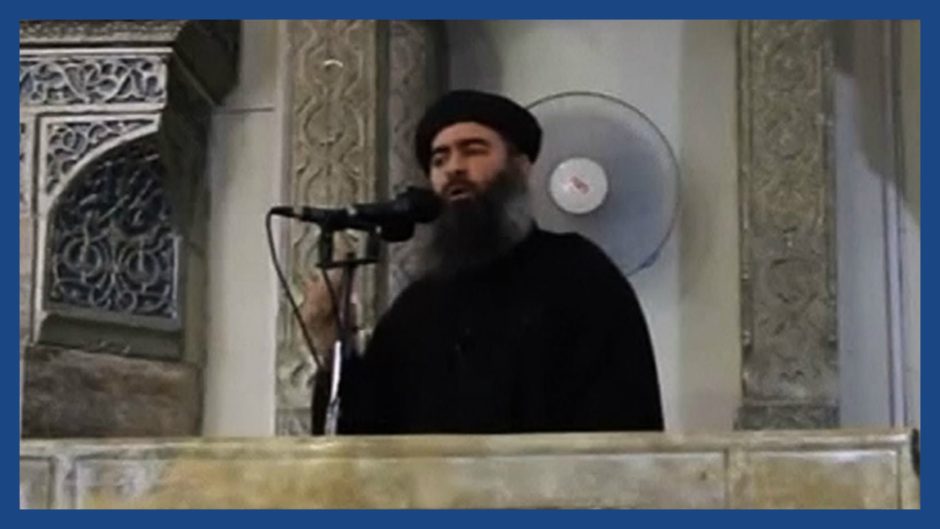After weeks of fierce fighting, Iraqi troops, backed by U.S. air power, stormed into Falluja on June 17, recapturing parts of the city from Islamic State, which had held it since the end of 2013.
Sixty five kilometers west of Baghdad, Falluja was the first major city in Iraq to fall to the jihadists. Having occupied Falluja — the scene of two bloody battles in 2004 pitting U.S. marines against Iraqi insurgents — Islamic State went on to conquer Mosul, Iraq’s second largest metropolis, and an assortment of small Iraqi towns.

Islamic State achieved these victories less than two years after the United States withdrew nearly all its forces from Iraq.
In neighboring Syria, enmeshed in a civil war which has claimed the lives of almost 500,000 people since 2011, Islamic State has seized vast swaths of territory and established its de facto capital in Raqqa.
Emboldened by these successes, Islamic State leader Abu Bakr al-Baghdadi proclaimed a borderless caliphate in 2014.
Since last year, however, Islamic State has been on the defensive, having lost 45 percent of its territorial holdings in Iraq and 20 percent in Syria. Major towns retaken from Islamic State include Kobani and Palmyra in Syria and Tikrit and Ramadi in Iraq.
And now Kurdish forces are besieging Raqqa.

Is Mosul next? Last week, Iraqi Prime Minister Haider al-Abadi vowed to reclaim it.
The losses incurred by Islamic State can be attributed to several factors.
The United States, supported by a coalition of 66 nations, has stepped up its air campaign in Iraq and Syria, bombing Islamic State bases, oil production facilities, oil tanker convoys and cash storage and distribution sites.
U.S. aircraft have conducted 75 percent of the strikes, leaving the rest to European and Arab allies. Two thirds of the raids have taken place in Iraq, where Islamic State was born, and one third in Syria.
These strikes have reportedly exacted a heavy toll on its fighters and killed several of its commanders, notably Abd al-Rahman Mustafa al-Qaduli and Omar al-Shishani. Qaduli was close to Abu Musab al-Zarqawi, the first Islamic State leader, and served as Islamic State’s finance minister. Shishani, a Georgian national, was its minister of war.

In its quest to cripple Islamic State, the United States also has resorted to cyber warfare. Cyber Command, a branch of the U.S. National Security Agency, has attacked Islamic State’s computer network, disrupting its capability to recruit new volunteers, issue orders and carry out daily functions.
“Our cyber operations are disrupting their command-and-control communications, President Barack Obama said recently.
Despite Obama’s vow to disengage, he has significantly increased the number of military personnel in Iraq. Some 6,000 American soldiers are now stationed in Iraq, protecting U.S. diplomatic missions, training Iraqi troops and carrying out special missions.
Given its proximity to Iraq, Iran has played a central role in the battle against Islamic State, its advisers having trained Iraqi Shiite militias.
In Syria, the United States has committed 300 soldiers/trainers to the task of defeating Islamic State. Although Washington is opposed to President Bashar al-Assad’s regime, having urged him to resign, it has refrained from attacking his forces so far.
Russia’s decision last September to carry out air strikes against Syrian rebels appears to have changed the dynamics of the war in Assad’s favor. For the first time in several years, the Syrian army is on the offensive. The Russians have bombed rebel forces across the board, including those supported by the United States, but have hit Islamic State, too.
Apart from the Russians, Syria is being assisted by Iran and Hezbollah, the Lebanese militia.
Bowing to American and European pressure, Turkey has finally sealed off its border with Syria. Tens of thousands of foreign volunteers, particularly from the Arab world and Europe, streamed into Syria, via Turkey, to join the ranks of Islamic State. Turkey’s long overdue measure is intended to stem this flow, which had been drying up as Islamic State lost chunks of territory in Iraq and Syria.
Despite its setbacks, Islamic State is far from finished, having stepped up the pace of attacks in Iraq and Syria, where it deploys 18,000 to 20,000 fighters. During the first quarter of 2016, it launched 891 attacks, a 44 percent increase over the previous few months, and killed 2,150 Syrians and Iraqis.
Islamic State’s affiliate in Egypt, Sinai Peninsula — based in the Sinai Peninsula — has attacked government offices as well as army bases and patrols. Last October, Sinai Peninsula shot down a Russian airliner with more than 220 passengers on board.
In Libya, where chaos has reigned since the overthrow of dictator Moammar Qadaffi in 2011, Islamic State has seized towns and villages along the Mediterranean coast.
And in a worrisome development, Islamic State has gone global.
U.S. Secretary of State John Kerry claims that, due to its eroding fortunes in Syria and Iraq, Islamic State has targeted Europe. Since last November, it has perpetrated attacks in Paris and Brussels, killing 160 civilians.
According to United Nations Secretary General Ban ki-Moon, Islamic State has only begun to hit international civilian targets. In the last six months, he noted, its operatives have cut a path of death and destruction in 11 countries, killing more than 500 people and injuring hundreds more. He expects “well prepared and centrally directed” Islamic State attacks to become “a more frequent occurrence.”
In other words, Islamic State is here to stay, at least for the foreseeable future.
Former British Prime Minister Tony Blair has warned that Islamic State cannot be defeated by air strikes alone. What is required, he believes, is a “proper ground war.” Arab armies, supported by Western troops, should bear the brunt of this war, he suggested.
Easier said than done.
Arab leaders have little or no appetite for such a campaign, which would be lengthy and costly. If they had been willing and able to undertake such a mission, they would have launched a war already.
